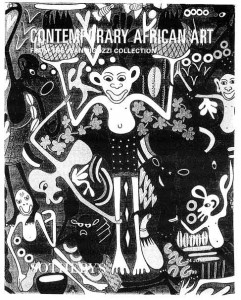The Chumbe island (Zanzibar) Coral park has won the British Airways ‘Tourism for Tomorrow’ award (Southern region) for its concerted efforts in preserving the marine and coastal environment -Daily News.
Tanzania’s cashew nut producers did well in 1999. Exports reached 48,700 tons which brought in about $51 million -the export price has increased from $700 per tonne in 1997 to $900 per tonne in 1999.
There have been a number of serious accidents recently. Nine people were killed and 43 injured when a bus overturned in Handeni in January. On March 19 in Rungwe an oil tanker overturned and in the fire which followed 33 people died. A Sudanese owned Boeing 707 cargo plane on its way to Mwanza to collect 40 tons of fish for export to Europe crashed into Lake Victoria, four kms from the runway on February 13. The crew were saved. On March 19 five people were killed and 21 were injured when a bus overturned in Morogoro.
In view of the 52% failure rate in the treatment of malaria using chloroquine, Tanzania has cleared for use two new drugs, both derivatives of ancient Chinese medicinal plants. The new drugs are Arsumax (also recommended by the World Health Organisation -WHO) produced by a French manufacturing company and Beta Artmether from China -The East African.
At the meeting in Nairobi in mi-April of the Convention on International Trade in Endangered Species (CITES) a worldwide ban on the sale of ivory was re-imposed for two years. Tanzania was one of the countries pressing for this decision -The Times.
The Ministry of Defence has issued a statement on the ‘streamlining’ of the Tanzanian army. No new recruitment was being carried out except for replacements following deatl1 or compulsory retirement -Daily News.
Public opinion aided by the press and the National Environmental Management Council with support from Vice-President Omar Ali Juma has been successful in causing the Ilala Council to remove a massive billboard advertising cigarettes which had been built at the Palm Beach end of the Selander Bridge in Dar es Salaam -Guardian.
Tanzanian Vice-President Dr Omar Ali Juma has appealed to donors to give maximum support to private institutions like the Hubert Kairuki Memorial University (HKMU) to enable them to provide better services to the people. He congratulated the university, which began in 1997 and whose Vice Chancellor is Britain-Tanzania Society member Professor Esther Mwaikambo, on being the first private university in the country to be given a certificate of permanent registration.
Over 6,000 reptiles were exported from Tanzania in 1998 -a tenfold increase compared with 1991. Three quarters were spiny-tailed lizards, geckos and chameleons. The Coordinator of the Trade Records Analysis of Flora and Fauna in Commerce (TRAFFIC) said that these exports were beginning to pose a danger to some species -Daily News.
The rule under which new recruits to the Tanzania People’s Defence Forces are expelled from the army if they marry within six years is to continue -Guardian.
Agreement was reached on a new policy on Non-Government Organisations (NGO’s) at a meeting of 150 participants in Morogoro in November. A new Act of Parliament is expected to streamline NGO registration procedures and to create a new co-ordination board and registrar to supervise registration. There will be a new code of conduct and an NGO data bank.
According to Radio Tanzania quoted in the Sunday Observer, two inmates of the Ngwale Prison in Chlmya District escaped recently. However, a few metres from the prison, which is surrounded by a dense forest, they suddenly came face to face with lions. They climbed a tree but the lions sat down under the tree. Eventually the prisoners managed to hail a passing vehicle carrying tobacco which rescued them. But as they were still wearing prison clothes the driver took them straight back to jail much to their chagrin.
Fast moving vehicles on a mile-long road stretch in Zanzibar’s Jozani Forest Reserve have killed about 150 of the endangered red colobus monkeys since 1996 according to an article by Simon Kivamwo in the Tanzanian Guardian. Quoting from the NATIONAL GEOGRAPHIC SOCIETY JOURNAL, he wrote that most of the monkeys were being crushed to death by fast cars when trying to cross the road to get to trees on the other side. But after the installation of bumps to check the speed of the vehicles only one monkey had been killed. Jozani forest reserve is home to the world’s remaining 2,000 Zanzibar red colobus monkeys.
The government has declared illegal the breakaway (from Pare Diocese) Mwanga (Kilimanjaro) Diocese of the Evangelical Lutheran Church of Tanzania (ELCT). There have been clashes between church followers.
1,900 local people with the help of environmentalists are suing the Irish investor in the proposed 10,000 hectare multi-million dollar prawn project in the Rufiji delta claiming that this would cause them to be evicted from their ancestral land. It appears that the prospective financiers have now lost interest -East African.
Uganda has paid Tanzania $64.39 million out of the originally agreed total of $132.3 million as compensation related to the war involving the two countries in 1978-79 -Daily News.

